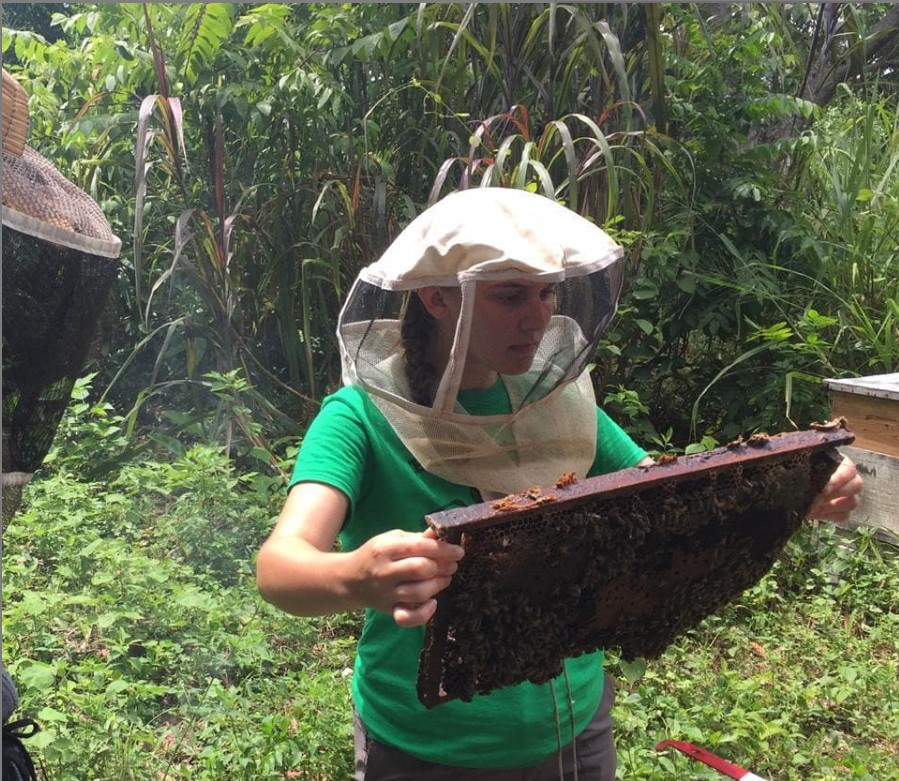This is a continuation of our "IANR is Global" series, which highlights the many ways internationalization is woven through the Institute of Agriculture and Natural Resources: through research collaboration, government and private industry partnerships, extension work, student educational experiences and the IANR community from around the world.
This edition is specifically focused on the many global voices we have on campus who will be sharing their expertise through seminars during spring semester 2020. Graduate student Bridget Gross will be presenting a talk entitled “Beekeeping in Different Cultures” on February 14, as part of the Department of Entomology's seminar series. We appreciate the expertise we are fortunate to have from all over the world, as shown by their many and varied contributions to the work of the university and our continued mission to create a globally engaged institution. To this end, we want to help our campus community get to know each other (and the world) more, starting with these experts.
Where is your hometown? Where did you receive your education?
I grew up in Vermilion, Ohio, right down the road from the amusement park Cedar Point. I received my Bachelors degree in Environmental Sciences from The College of Wooster in Wooster, Ohio. Now I'm working towards my Masters in Entomology here at UNL.
Tell us a little about your path to where you are now.
I have always been interested in the environment and science. My sophomore year of college I studied abroad in Costa Rica with the Organization for Tropical Studies.
After my semester abroad I knew that I wanted to work with insects. That same summer I started working for The Ohio State University Honey Bee Lab and absolutely loved it. As graduation approached I knew I wanted to keep working with bees, and connected with the head of UNL Bee Lab, Dr. Judy Wu-Smart.
What led you to be interested in global topics like beekeeping in other cultures?
Beekeeping practices change depending on where you live. Weather, climate, plant diversity, pests and pathogens all vary by region, meaning that beekeeping can be very different based on your location. Even Ohio and Nebraska are different in their common beekeeping practices. This past summer I had the opportunity to volunteer with Farmer-2-Farmer and work with some beekeepers in the Dominican Republic. I wanted to talk about some of my experiences, and provide information on why we should study beekeeping in different cultures.
What is something people don’t know (or that you wish they knew) about where you’re from?
A lot of people want to help pollinators, and one of the best things you can do is plant more flowers and plants. Preferably they would be native to the area, there would be a great diversity of plants, and something would bloom in every season (excluding winter). Also, get to know your local beekeeper!
Why is it important for institutions like the University of Nebraska to have faculty, staff, and students from or with experience from different parts of the world?
I discuss this in my seminar a bit. As we attempt to tackle current problems, it helps to know other people's thoughts and opinions. We can use other's information to better understand current problems, and create innovative solutions.
What is one piece of advice you would share with students?
Take time for yourself. It is very easy to fall into a cycle of constant work, but if you do not take time for you then you are bound to burn out.
We encourage the campus community to attend Bridget's seminar at 11:00 a.m. on February 14 in Entomology Hall, room 202!
---
Are you giving a seminar in spring 2020 (or the future) and have an international element to your work, studies or background you'd like to see highlighted? Contact Brianne Wolf at bwolf4@unl.edu.
